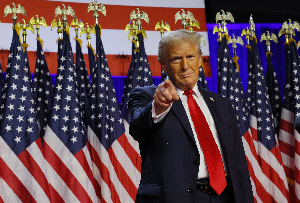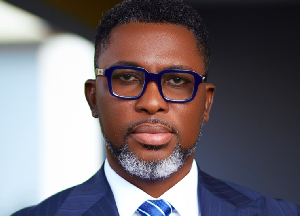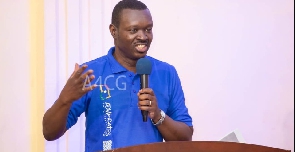As the results of the United States presidential election came in on Wednesday, showing that former President Donald Trump had won, relief took hold more than 11,000 kilometres (7,000 miles) away, in Uganda’s capital Kampala.
“The sanctions are gone,” the East African country’s parliamentary speaker, Anitah Among, told parliament, hinting at her expectation of improved ties with the US under Trump. The speaker is one of a series of Ugandan officials who have been barred from entering the US in recent years because of allegations of human rights violations against them.
But while some African governments that have faced allegations of authoritarianism in recent years might find reason to celebrate, sanctions are not the only thing that might go under Trump, warn analysts: US aid might too.
Four days after Trump’s re-election, Africa is grappling with the prospects of what his second term could mean for the continent.
His win on Tuesday over Vice President Kamala Harris drew immediate congratulations from African leaders, with Egypt’s Abdel Fattah el-Sisi, Ethiopia’s Abiy Ahmed, Nigeria’s Bola Tinubu, and South Africa’s Cyril Ramaphosa among those to quickly reach out to Trump.
Yet, many experts believe Trump’s foreign policy will prioritise transactional relationships and shift away from multilateral partnerships, with aid, trade, and climate agreements now uncertain.
Trump’s focus, they warn, could be limited to how Africa fits within his broader geopolitical objectives, especially concerning his rivalry with China. Those who fall in line will be favoured, others pressured to conform – that, say analysts, was Trump’s track record during his first stint in power, between 2017 and 2021.
“He is a dealer. He transacts based on what he can get,” said Christopher Isike, professor of African studies and international relations at the University of Pretoria.
Authoritarian allies
Patrick Bond, professor and political sociologist at the University of Johannesburg, said he expected leaders who have faced scrutiny over their human rights records – such as Uganda’s Yoweri Museveni and Rwanda’s Paul Kagame – to try to curry favour with Trump. Both Museveni and Kagame have long been important US allies, and their supporters have pushed back against more recent attacks on their human rights records, insisting that the leaders remain widely popular in their countries.
Zimbabwe’s President Emmerson Mnangagwa, who has also faced US sanctions, also praised Trump’s victory, describing him as a leader who “speaks for the people”.
Samuel Oyewole, a Nigerian political science lecturer, remarked that Trump is unlikely to let human rights and democratic norms drive his relationship with African leaders.
“The emphasis on human rights and democracy, which was emphasised by Biden, may not be prioritised for strategic interest under Trump,” Oyewole told Al Jazeera.
Trump may actually target countries deemed to be acting against US interests, warned Oyewole.
This could strain relationships with democracies like South Africa, which has criticised US support for Israel and maintains strong ties with Russia and China. South Africa, which – despite recent tensions with Washington, counts on the US as a key economic and strategic partner – will not want that.
“I look forward to continuing the close and mutually beneficial partnership between our two nations across all domains of our cooperation,” Ramaphosa wrote in his congratulatory message to Trump on X.
Economic ties in jeopardy
Trump’s return to office also places the future of the African Growth and Opportunity Act (AGOA) in jeopardy, with the current agreement set to expire next September, say analysts.
Africa News of Saturday, 9 November 2024
Source: aljazeera.com

















